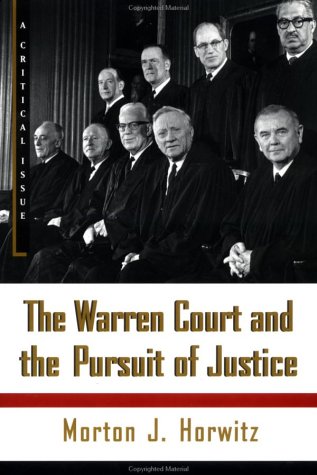 mbia Law School. It is forthcoming in vol. II of TRANSFORMATIONS IN AMERICAN LEGAL HISTORY, Alfred Brophy, Daniel Hamilton, eds. (the link is to vol. I). Hat tip. Here's the abstract:
mbia Law School. It is forthcoming in vol. II of TRANSFORMATIONS IN AMERICAN LEGAL HISTORY, Alfred Brophy, Daniel Hamilton, eds. (the link is to vol. I). Hat tip. Here's the abstract:Morton Horwitz's Transformation books developed a critical approach that elaborates the underlying premises of legal doctrine and compares them to suppressed or ignored alternative perspectives. However, Horwitz's Warren Court book is largely an appreciation of the Court's doctrine that accepts at face value its underlying premises and the judges' claim to vindicate democratic values. In this essay, I speculate on what a Transformation-style critique of the Warren Court might look like and suggest that the Court is vulnerable to criticisms analogous to those the Transformation books make of earlier doctrine. I suggest that book ignores an alternative perspective on social justice that emerged clearly after the Warren Court era but was conceptually available during it.